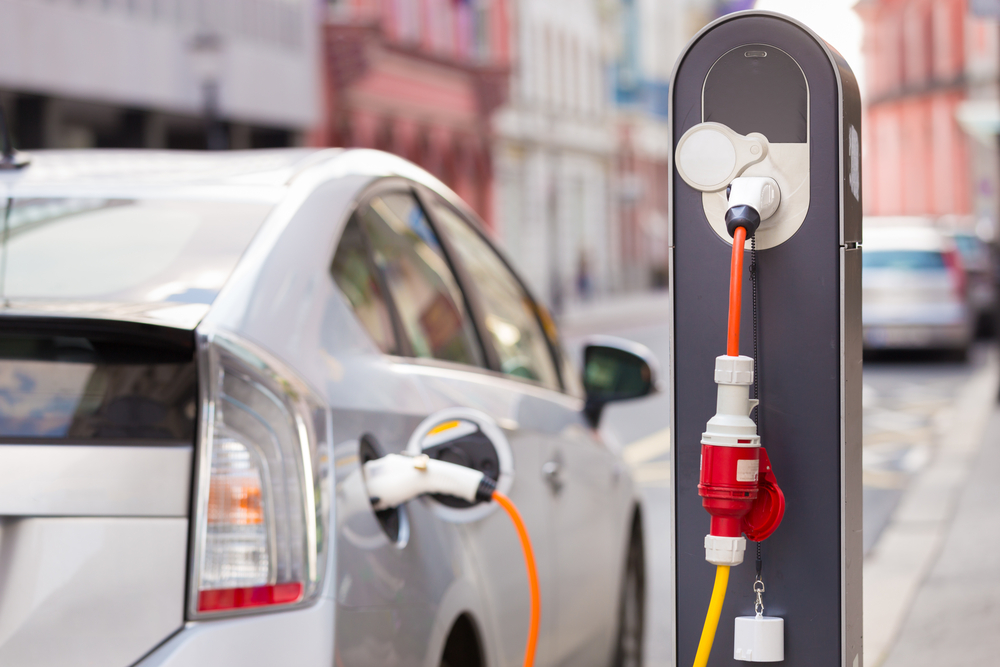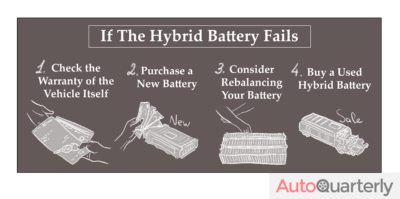Hybrid vehicles have been all the rage for around twenty years now. In this guide, we will shine some light on this very subject and give you the information you need to make an informed choice about your hybrid battery needs.
First, we’re going to go over a little bit about hybrid vehicles and how they function. Next, we are going to go over a few tips on how to increase the longevity of your vehicle’s own battery. Finally, we’ll help you to determine what it is you can do if your hybrid battery fails on you, and the steps you can take towards getting a functional vehicle again.
What You Need to Know About Hybrid Vehicles
Hybrid vehicles use both an electric battery and a traditional gas-fueled engine in tandem in order to power the vehicle. The vehicle itself has complex mechanisms that allow it to switch from electric and gasoline in a fluid manner. This allows the user to save on gasoline purchases in the long run by always alternating the car’s main source of power.
Gasoline usage is cut down tremendously in these kinds of hybrid vehicles. Hybrid vehicles are not only more efficient at saving fuel, but they are also better for the environment as well. This is because their emissions are reduced due to less gas consumption, overall.
For a closer look at the different kinds of hybrid vehicles, please consult this helpful chart from the US Department of Energy.
Types of Hybrid Vehicle Batteries
There are a few types of batteries that can be found in modern hybrid vehicles. Let’s take a look at several of the most common.
- Nickel-Metal Hydride: These are the most common hybrid vehicle batteries on the market. They are relatively inexpensive compared to some other variants and are the battery of choice for the Toyota Prius automotive line, which means they’ve been used and developed for 20 years and counting. They are designed to be reliable and stable while being cost-effective at the same time.
- Lithium-Ion: These are the cream of the crop as far as batteries go. They come with long-lasting warranties and longevity claimed to last over 100,000 miles at least. With this kind of longevity comes a price tag, however. These are easily some of the most expensive hybrid batteries on the market.
- Lead Acid: These are the most affordable variety of batteries for hybrid cars, but they are also not as able to hold as much energy nor last as long as either the nickel-metal hydride or lithium-ion batteries. Overall, lead acid batteries are rarely used and they’re being phased out.
What Affects Hybrid Batteries Most?
Batteries and their lifespan are based on how hard you drive your vehicle over a period of time. If you only occasionally use it for weekly grocery trips, that’s one thing. On the other hand, if you are a traveling businessman or are a licensed Uber driver, that’s an entirely different story. Hybrid batteries will wear out much faster in these long-distance situations as opposed to the person that takes a short trip to the supermarket once or twice a week.
How Long Do Hybrid Batteries Last?
This is a question that is asked quite a bit in regard to hybrid vehicle ownership. Unfortunately, there is no clear cut answer. It really depends on the vehicle and how hard you drive it. Failure can occur at 100,000 miles or even as high up as 200,000 miles.
The usual litmus for hybrid batteries is that they start to lose their longevity after around 10 to 15 years of use. This usually runs them close to the 150,000-mile territory. Please note, though, that if you’ve inherited a used vehicle your ultimate mileage potential might be far less than this.
Tips for Extending the Life of Your Hybrid Battery
Just because hybrid batteries have a finite lifespan, that doesn’t mean you can’t take some initiative on lengthening it as long as possible. Here are a few tips on how to make sure you can get the most out of your battery for as long as possible.
Temperature Matters
Fans exist to keep things cool, but if they get gunked up with oil and dirt they can be next to useless. Make sure to clean your battery’s fan at intervals in order to keep the battery running at top condition.
It’s unfortunate but hybrid batteries are going to work far more effectively in some climates more than others. Extreme heat or cold can shift the efficiency of a battery drastically as opposed to more moderate climates. This is ultimately beyond the user’s control for the most part, but it’s still crucial to know and understand.
Do You Service Your Vehicle?
Hybrid vehicles have a unique power system compared to more traditional vehicles. They rely on the interplay between the engine and the battery itself. If your engine isn’t running optimally, it’s going to cause your battery to wear out faster since it’s having to pick up some of the engine’s slack.
It’s good to get in the habit of having your hybrid vehicle serviced on a regular basis. This will easily increase the overall lifespan of the battery. It’s also generally a good habit to have for any kind of vehicle, much less a hybrid. Maintenance can be costly, but not nearly as expensive as replacing a worn-out hybrid vehicle battery with a new one.
It’s All About How You Recharge

One of the easiest ways to maximize your hybrid battery’s longevity is to simply follow what your vehicle manufacturer says about proper recharging practices. It seems like such a ridiculous thing to worry about, but it can make a difference in your battery’s overall lifespan. Some hybrid vehicles recharge through their braking system (known as regenerative braking). Others can charge using a wall-mounted plug or some other form of equipment.
Most batteries lose a certain amount of charge they can hold over time. This is usually due to excessive charging practices of the owner. This is no different than cellular phones and tablets, which suffer similar issues over time with the total amount of charge their battery can hold. Take the safe route here, don’t charge your hybrid vehicle any longer than your manufacturer recommends and you’ll be extending your battery’s shelf life in the long run.
If Your Hybrid Battery Fails: A Few Options
If you have a battery failure in your hybrid vehicle, don’t fret. It’s certainly not the end of the world. You have a few different options at your disposal in order to get your car running again quickly, though they vary in affordability and longevity.
Check the Warranty of the Vehicle Itself
First and foremost, you want to check your vehicle’s warranty. Many hybrid vehicles offer a warranty that is based on total miles driven or years of ownership. Some states, such as California, New York, and Vermont, have laws in place that require hybrid battery warranties to last up to 150,000 miles. That means if your battery fails before that point in one of those states, you can get it replaced under the warranty for free.
Purchase a New Battery
If a warranty isn’t on the table, the easiest option is to purchase a new battery from the manufacturer. Unfortunately, this can cost thousands of dollars once you take into account how much it costs to install (notice we said the easiest thing, not the most cost-effective!). The good news is that if you do this you will usually get another decade out of your hybrid vehicle.
Consider Rebalancing Your Battery
There are also some loopholes. For example, there are many dealer and non-dealer affiliated third-party hybrid vehicle experts that can replace burned-out and depleted cells in your battery for a fraction of the cost. The technical term for this is rebalancing. It’s not nearly as efficient or as long-lasting as a newer battery installed by a dealership, but it’s a good alternative if you don’t want to shell out a lot of money.
Buy a Used Hybrid Battery
Another option you have is purchasing a used battery that was once in a previous hybrid. These kinds of batteries are procured via hybrids that are totaled in major accidents. This is a cheap solution, but not a well-recommended one as you truly don’t know the longevity of each used battery itself.
Closing Thoughts
Hybrid batteries aren’t always a simple fix. You can’t just go to your local auto parts store and buy a new one for under $100. These are complex components that can cost quite a bit of money to replace and can be one of the most expensive aspects of owning a hybrid vehicle.
We hope this guide has helped understand the basics of what you need to know when it comes to hybrid car batteries. Despite the cost, we think hybrid vehicles will ultimately save you countless dollars in the long run due to their high level of efficiency.



